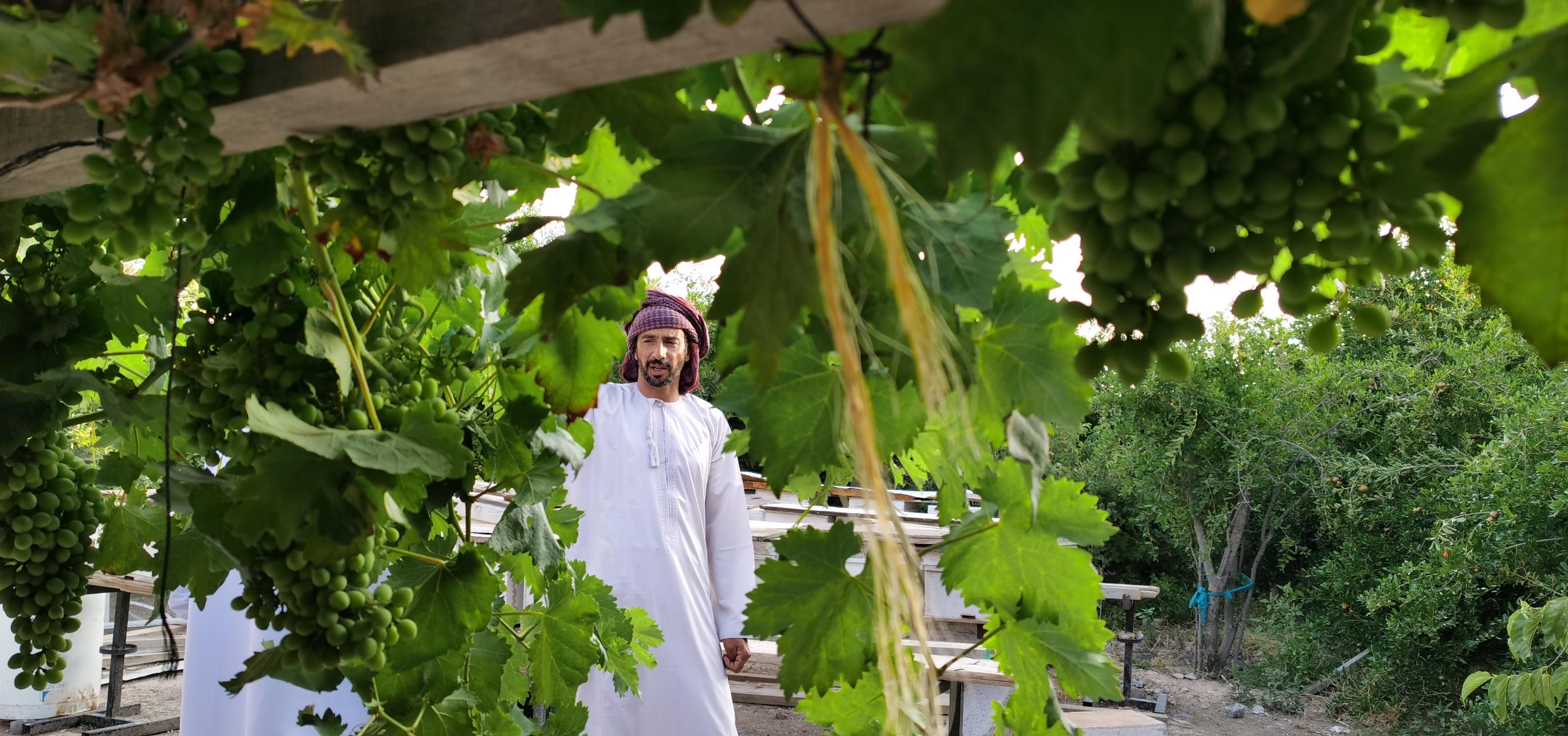

MUSCAT: More than half a dozen olives lined up the gates of his home. Many of the branches were heavy with green fruits.
“We have several kinds of fruit-bearing trees surrounding the property but not as many as you will find in the farm,” Mussabah al Awaimari said in Arabic.
His home is located a stone’s throw away from the famed Alila Jabal Akhdhar, it’s sturdy, rustic and luxurious buildings a scenic backdrop to Mussabah’s home.
When he said his farm, our team from Oman Daily Observer thought he meant his ancestral family’s farmland located deep within some hidden corners of Jabal Akhdhar. It was only later we realized that he has two, one of which, the more commercial one, located in Hail al Yemen. It was where he was taking us to show us what keeps him busy.







Mussabah’s home speaks volume of his profession. By the driveway are tons of onions just sitting in one corner. His son, 12-year-old Munther, was inside the pigeon’s cage located behind the house, cleaning it up and feeding the birds. He has several grape vines neatly arranged into rows. They too were heavy with green fruits.
“It’s gonna take a few more weeks before they become ripe,” he said.
We timed our visit with the fig fruit harvest season. There were several of them surrounding the house but not a lot of fruits on the trees. Surrounding the house, he has about 6 apple trees, three different varieties of figs, several pomegranates that will ripe in a few days among others. He also have his own bee farm which is a good source of honey.
His farm in Hail al Yemen is a different story though. Sitting in nearly a hectare of space, it was far bigger with each section designated for a specific plant.
“We have some hail a few months back. That was bad for our plant,” he shared.
Mussabah's day as a farmer is very spontaneous and no two days are alike. A great deal of his time, however, is spent in tending to the soil and caring for the plants and making sure that they are properly watered every day.
Contrary to popular opinion, while many who don’t live in Jabal Akhdhar are excited and celebrate when in rains peanut-sized hails, it’s one of the challenges the farmers have to contend with. If the hail comes during fruit-bearing months, all the fruits are considered spoilt and they will not be able to make a profit.
“Hail, when it hits the fruits, usually cut it into half or causes physical deformity. This either kills them or causes for their taste to sour,” he said.
The small pieces of ice also destroy the leaves and the tree itself so for this season, Mussabah said that it was hopeless to get anything from the fig fruits.
Loses had been a part of Mussabah’s life as a farmer. One cannot put all the eggs in one basket. A problem can arise anytime — whether it’s the temperature fluctuating, less water or more pests, they have to learn to adapt to what nature gives them. Sometimes, they are also challenged by less manpower to work on the farm which is why even Munther helps in his little ways.
Mussabah and farmers like him, however, have adapted to the different conditions of Jabal Akhdhar. While the figs may have suffered, they can still depend on the onion harvest.
During our visit, one of his workmen was busy drying and packing onions harvested from the field. After doing a few hours of removing weeds, Mussabah and his son helped out packing the onions.
His day as a farmer is very spontaneous and no two days are alike. A great deal of his time, however, is spent in tending to the soil and caring for the plants and making sure that they are properly watered every day.
“My son is a big help. I’m glad he is developing a passion for cultivating plants. He is not afraid to get his hands dirty. It’s good that at an early age, he has learnt that this is our source of livelihood,” Mussabah said.
As for Munther, he spent a great deal of his time with working adults and have gotten a lot of their belief system. He was excited to be able to continue the work that his father started.
“After school, I always spend my time with my father. I like being on the farm. I can eat fruits and I can feed the birds. There are many things to do and I want to learn caring for these plants as I grow old,” Munther said.
This provides relief to Mussabah. A proud father, he thinks that while other children are embarrassed to work in the field, he is thankful that his child has a better understanding of life.
Oman Observer is now on the WhatsApp channel. Click here



